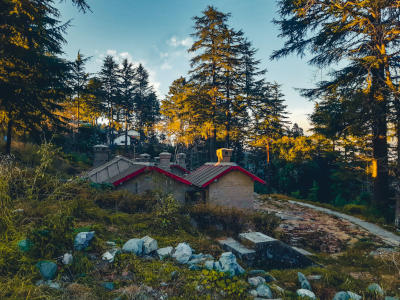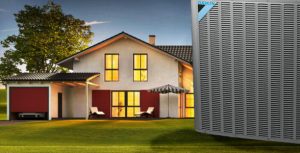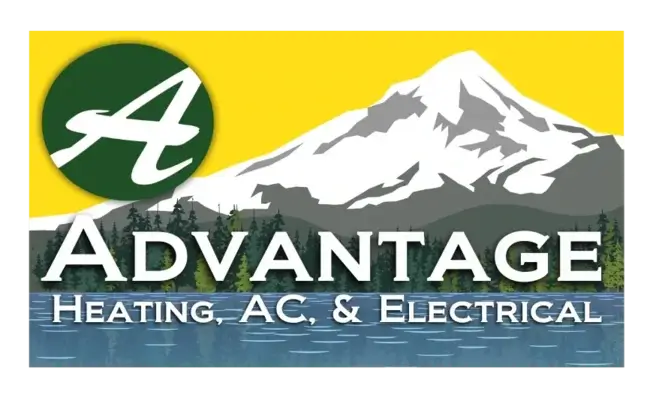What Size Heat Pump Do You Need?
Like the rest of your HVAC system, having the right size heat pump is critical. Not having the right equipment can be expensive and make your home uncomfortable. So, how do you know what size of heat pump you need?
It depends.
The size heat pump of you need depends on several factors. There is a rule of thumb that can help you get a rough idea, but it is not a 100% accurate answer. In fact, you often find that the heat pump you need is usually one size lower or higher.
That means that if you don’t take every factor into account, then you could spend money you don’t need to.
In this post, we’ll give you the information you need to find what size heat pump you need. We’ll go over how to find a starting point and then cover what the important variables are. At the end, we’ll tell you how to find the exact size heat pump you need.
How to Get a Rough Size
To get a rough idea of what size heat pump you need, you first need to know the square footage of your home.
BTU Per Square Foot
The most common advice you’ll see on the internet, or even from some function-based HVAC companies, is to multiply your home’s square footage by 30. That’ll be the number of BTUs (British Thermal Units) you’ll need from a heat pump.
There is some wisdom in that. If you live in some of the temperate parts of America, 30 BTUs per square foot is a good starting place. However, the recommended amount of BTUs change based on climate zone. That is too high of a number for our market in Oregon, so you need to look at the context of your region before you start calculating.
Most homes in our market only need 15 to 20 BTUs per square foot. If we were to use the 30 BTU recommendation, we would be giving our customers oversized units that would short cycle.
Determine Your Climate Zone
Depending on the purpose, the United States can get broken up into 5 or 7 climate zones. To determine the correct heat pump size, we’ll use the 7-zone layout.
If you want to know what zone you live in, you can use this map here.
The reason we use the 7-zone layout is because your heat pump will handle your heating, cooling, and will also help to dehumidify your home. So, you will need to account for every kind of weather to stay comfortable all year long.

If the zone you live in is extremely hot or cold, then you will probably need to pair your heat pump with additional equipment such as a furnace or AC unit.
Climate Zones Affect Sizing
The zone you live in will affect your home comfort needs. If the zone you live in has extreme weather, you may start by looking for a heat pump that provides 60 BTUs per square foot. Your local HVAC sales professional should know the recommended BTUs for your zone.
However, this will not give you a 100% accurate answer for what size heat pump you need.
You may find that one of your neighbors has a 48,000 BTU heat pump, and another has a 60,000 BTU heat pump despite living in the same state with similarly sized houses.
What Affects Heat Pump Sizes?
So, what else influences the size of heat pump you need?
Quite a few things. Here are some:
- Number of Windows
- Home Facing
- Climate
- Whole System Efficiency
- Home Design
Windows
The number and size of windows affects how much the ambient temperature outside your home affects the temperature inside your home.
During the summer, more glass means more sun exposure. That sun exposure can heat your home and make it toasty indoors.
Heat can also escape out those windows during the winter. So, you might lose heat unless you cover your windows or close your curtains.

Home Facing
The direction that your windows are facing will affect the natural heat it absorbs. For example, if your home, or most of your windows, are facing North, then your home will absorb much more heat than a home facing any other direction. Conversely, if your home is facing South, it will not absorb much heat at all.
The Entire HVAC System
The energy efficiency of the ducts that carry air from your heat pump also affects the amount of energy that reaches your home. If your ducts leak heat, then your heat pump will not deliver as much heating or cooling as it should be able to. If you have a ductless heat pump, then you’ll be concerned with the lines that connect the heat pump to the head.
Home Design
The layout of your home will affect how efficiently an HVAC system can heat or cool it. A home with lots of small rooms and corners will trap heat while an open design will disburse heat across the entire space as the head or vents pump.
How to Know for Sure
Well, now we know that the right size heat pump depends on a ton of variables. There is a way to calculate all those to get an exact answer.
Load Calculations
Like with an AC or furnace, the answer is to have a Manual J or Block Load calculation. There are several Manual J formulas online. These are handy if you want to try your hand at it before talking to an HVAC sales pro. However, it may not be as accurate as a load calculation performed by your sales professional.
In some counties, you can even contact your electric or gas company and request an energy audit. They may charge a fee, but they will tell how to optimize every aspect of your home’s energy usage.
Problems With Oversized Heat Pumps
You will encounter a whole slew of problems if your heat pump is the wrong size. First, we’ll go over some issues you’ll encounter if your heat pump is too big.
These are:
- Short-Cycle
- Uneven Heating
- Increased Energy Bill
- More Frequent Repairs

Manufacturers do not design HVAC equipment to run for short bursts. A heat pump uses the most energy and goes through the most strain when it turns on. An oversized heat pump will overheat your home in some areas, then turn off. Once that heat dissipates to the rooms it didn’t heat, it will turn back on.
This cycle will repeat and damage the heat pump each time. It will also use a ton of energy and overheat or over cool your home.
Problems With Undersized Heat Pumps
If your heat pump is too small, you will encounter similar energy and repair problems, but with different causes.
These issues are:
- Long Run Cycles
- Insufficient Heating
- High Energy Use
- Increased Chance of Breakdown
A heat pump that is too small will feel like it’s running forever. It cannot change the temperature inside your home sufficiently. Because your heat pump will run for long cycles, it will draw on energy the entire time. It will also strain its parts and can eventually break down.
You’ll be stuck with an uncomfortable home, a high energy bill, and a broken heat pump.
Take Away
You want a heat pump that is exactly the right size for you. In order to find what size heat pump you need, have a Manual J or Block Load calculation performed. If your heat pump is too big or too small, then you have a ton of issues and additional expenses.
Who Are Advantage Heating and Air Conditioning, LLC?
We are your local HVAC Experts out of Salem, Oregon. We hope that this post gave you the information you need to know to find the right size of heat pump. If you have other questions about HVAC systems, check out our other blogs. To learn more about who we are and how we can help you, visit our website and follow us on social media – we’re here when you need us!







